'This story isn't just about me having strong legs': The trials and tribulations of Nicholas Roche and the Vuelta a España
The Irishman shares the pain and the passion of riding his favourite Grand Tour over the years
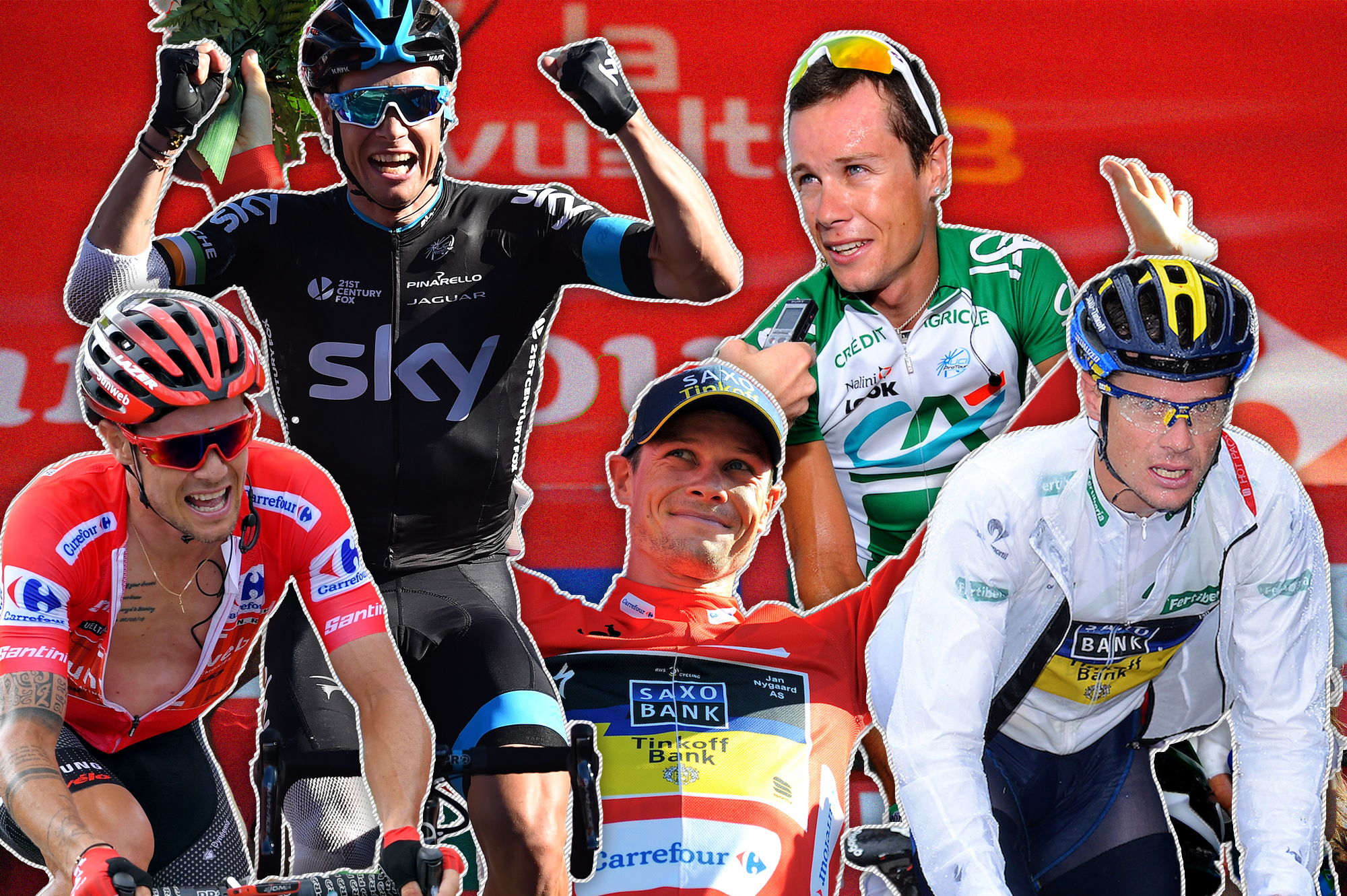
Nicholas Roche (Getty)
"I get carried away with it, they're good memories and the story isn't just about me having strong legs and saying I've done this, I've done that."
Nicholas Roche is talking about the Vuelta a España. His favourite Grand Tour that has seen him win two stages and wear the red jersey on two separate occasions. These are career-defining achievements for any rider, but what gives Roche's story depth is the small margins that decided it. Always a couple of seconds here or there.
As the Irishman time travels back to baking hot Augusts in Spain to distract himself from the (at the time of speaking) fortnight spent in coronavirus lockdown in his Monaco apartment, the tale resembles the sort of craggy stage profile you'd expect in a Grand Tour. There are the obvious ups, but he is as candid about the missteps he says cost him many more victories along the way.
For an hour and a half, he gives a comprehensive examination of his relationship with what he admits is his favourite Grand Tour. He's no longer stuck inside his apartment doing efforts on the turbo trainer just to make time go faster, instead, he's back on hot Spanish roads, duelling Daniel Moreno for his first Grand Tour stage win in 2013. Then, he's winning his second with Team Sky in 2015 before taking his second red jersey in 2019 and subsequently crashing out with a broken kneecap, one of the biggest disappointments of his career.
The Spanish Grand Tour is about passion and suffering, especially for Nicholas Roche.
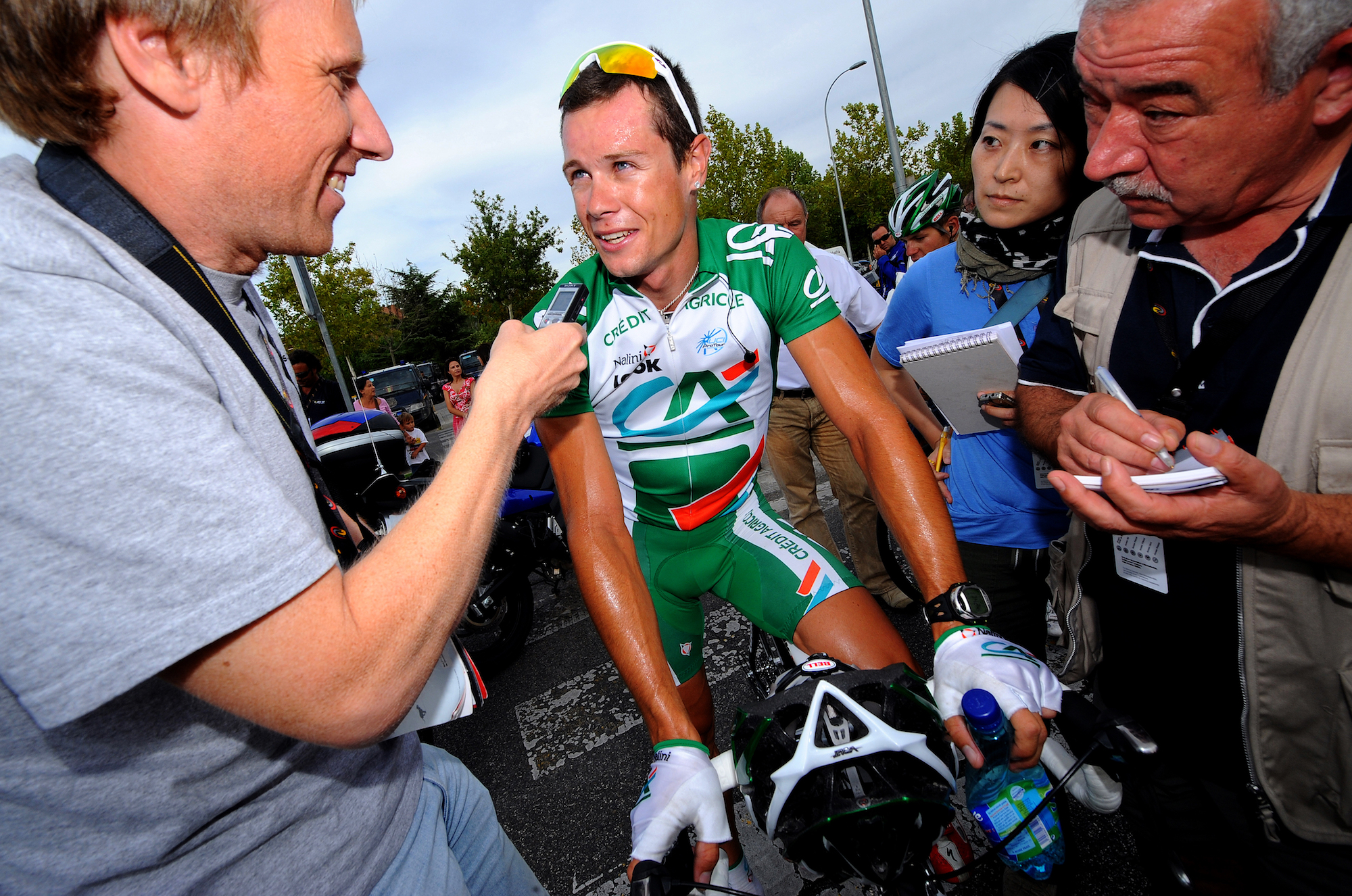
'Finally, finally, finally, a Grand Tour stage'
"The Vuelta has always been a race that fitted in with my natural body clock. I've always been better in July, August and September where somehow things kind of click in better for me, I like the heat," Roche says. "It's the climbs as well, short and steep, not the longer ascents we're used to seeing in the Tour and the Giro where power-to-weight ratio is really crucial."
Get The Leadout Newsletter
The latest race content, interviews, features, reviews and expert buying guides, direct to your inbox!
The 2013 Vuelta was Roche's 11th Grand Tour since he rolled out of Caprera for the team time trial at the 2007 Giro, but six years later he had left behind the French teams of his first nine years as a pro to join Saxo-Tinkoff.
Roche had first ridden the Tour de France in support of Alberto Contador, who finished fourth overall, with the Vuelta earmarked for the Irishman to see how far he could push his own personal ambitions.
"It was brilliant because until then I'd never had a team to support me. It was always, 'we'd give Nico a hand' but the goal for the team was always to get in the breakaway," Roche says. "Don't get me wrong, I always had one or two riders that were there to help me out during the day but I never had a full team to support me."
The Irishman says the lead up to the race was perfect, heading off for an altitude camp in Livigno with team-mate Roman Kreuziger who kept him motivated and reinforced his confidence, telling him "the little words that count every day".
"We had a really good group of riders and friends who were prepared to race and everything clicked together," Roche says. "Then I just had to take my chance. Everything was right from day one."
In the opening team time trial, Saxo only shipped 32 seconds to Vincenzo Nibali's Astana, but it was sitting on the bus the next day alongside Rafał Majka, Chris Anker Sørensen, Michael Mørkøv and Kreuziger that the touchpaper was lit.
"Bjarne [Riis] put both of his hands on my shoulders and said, 'Nico, you have it in you. You've worked so hard. I believe you can win the stage. And I believe you can win today.'
"I was never told that many times, it was great, and when I attacked I just had this feeling. I was confident, just because of those words that today I could do it."
This ambition had always been there, Roche says, but luck hadn't followed.
"I was always extremely competitive but I wasn't a winner. I just could not win a bike race. I could get results but there was always something that meant that I didn't have that killer instinct like some riders have, but I should have been able to win a lot more than what I've achieved in my career.
"There's a lot of times that I f*cked up and most times from my own fault. I went too late, I went too early, I got overexcited, I attacked when I had a good sprint, I attacked with 1km to go rather than waiting for the sprint, all these little mistakes. I put myself in a position to win but then finishing it off... I've always missed that."
In 2008 he had come within a photo finish of claiming a Grand Tour stage victory, edged out by Imanol Erviti, the Spaniard clawing his way past on the finishing straight in the two-up sprint.
But on August 25 2013, Roche took his chance on what he describes as a perfect stage for him. A short and steep climb meant "everything fitted in for me to have a proper go and obviously my confidence was really high so I thought I'd just go for it when König attacked and it worked out."
With under 2km to go, Leopold König shoots off the front of the bunch. Under the flamme rouge, Daniel Moreno drags himself, Domenico Pozzovivo and Roche back onto the Czech rider's wheel. Pozzovivo then launches his effort before Roche comes flying up from fourth position, past Moreno and König, then dropping Pozzovivo. Moreno tries to get back on terms but the Irishman is gone, sailing across the finish line, hands raised.
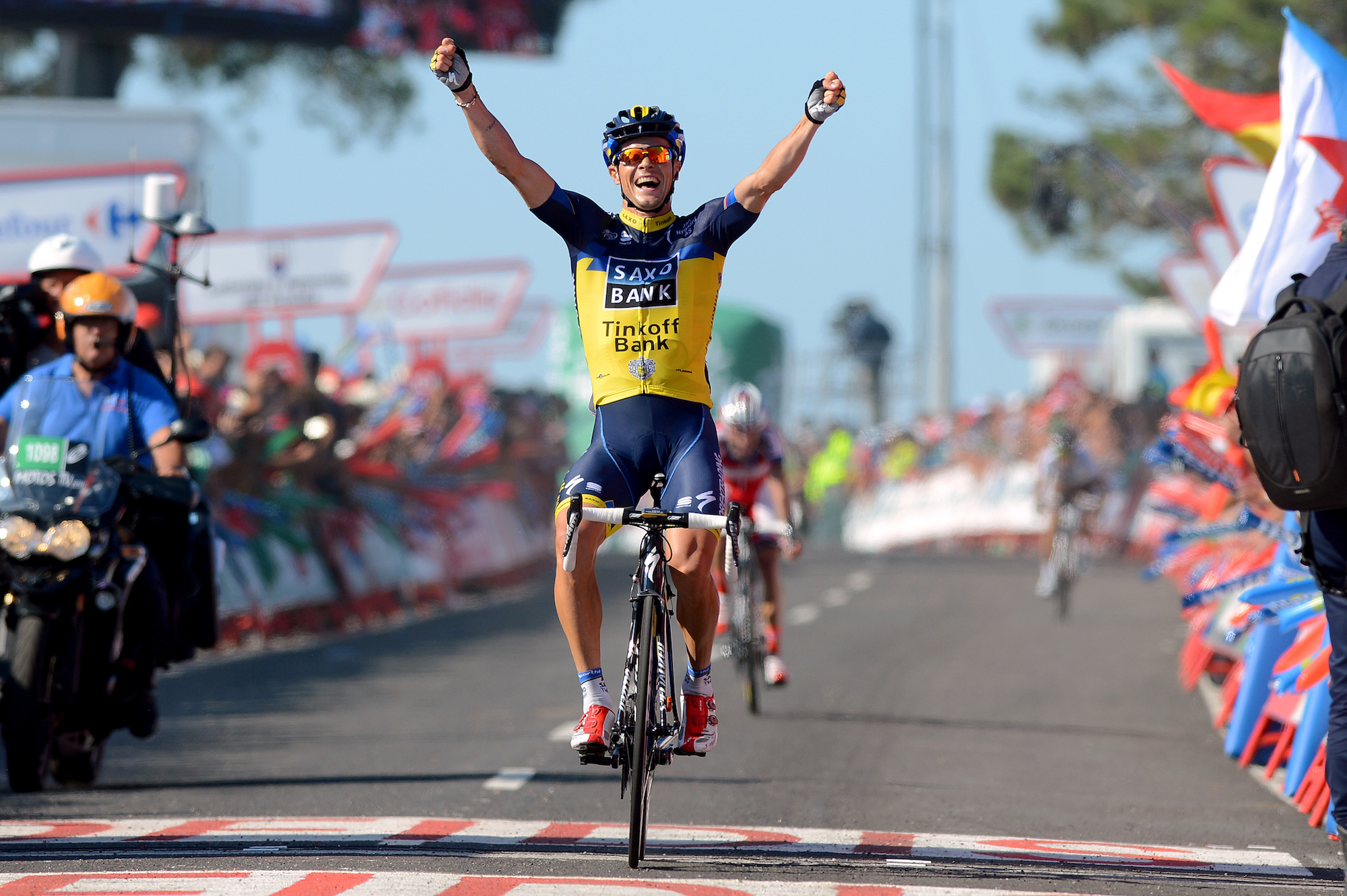
"I regret closing my jersey and putting my hands up in the air," Roche admits. "I was so excited that I'd won and wasn't thinking that every second counted because 10 days later I lost the red jersey by one second to Moreno. I could have had the jersey for two days back in 2013 but I only kept it one day.
"But I always think maybe I lost the second somewhere else... because there was the team time trial, there was a lot of other stuff, but I was like 'f*ck, if I had not closed my jersey at the top and really just sprinted for the line and put my hands in the air after I might have been able to keep the jersey for two days'. I didn't think about that on the day though, I thought that 11 days later," he laughs.
The day itself was reserved not for regret but relief. He had achieved what he had been working towards his whole life. "Finally, finally, finally, a Grand Tour stage, that was all I could think," says Roche. "It was like an explosion of joy. I just felt it was like taking a house off my shoulder. It wasn't a brick. It was a proper house, just all this weight. I was always for years, there and thereabouts, but never a winner. If you look at my palmarès I have so many seconds, fifths, sevenths, eighths.
"I've made mistakes that cost me very important victories but for me to be able to win, that was like 'oh yes!' because I could have had it done in 2008 when it was a photo finish and I got carried away there, I attacked with 600m to go and then I was caught on the line by Erviti. It could have already happened in my second-ever Grand Tour but no, I had to wait until eight Grand Tours later to be able to get that win. And in the Tour de France I was already second twice before that. I just had this frustration where I was like 'I'm gonna get results in Grand Tours but I just need to win a stage' and that was it, that was it done."
Over the next week of racing Roche hovered around the upper GC placings, then on stage eight, finishing behind König and Moreno this time, he finished far enough ahead of Chris Horner and Vincenzo Nibali to take the red jersey, finding himself in the lead in a Grand Tour for the first time ever.
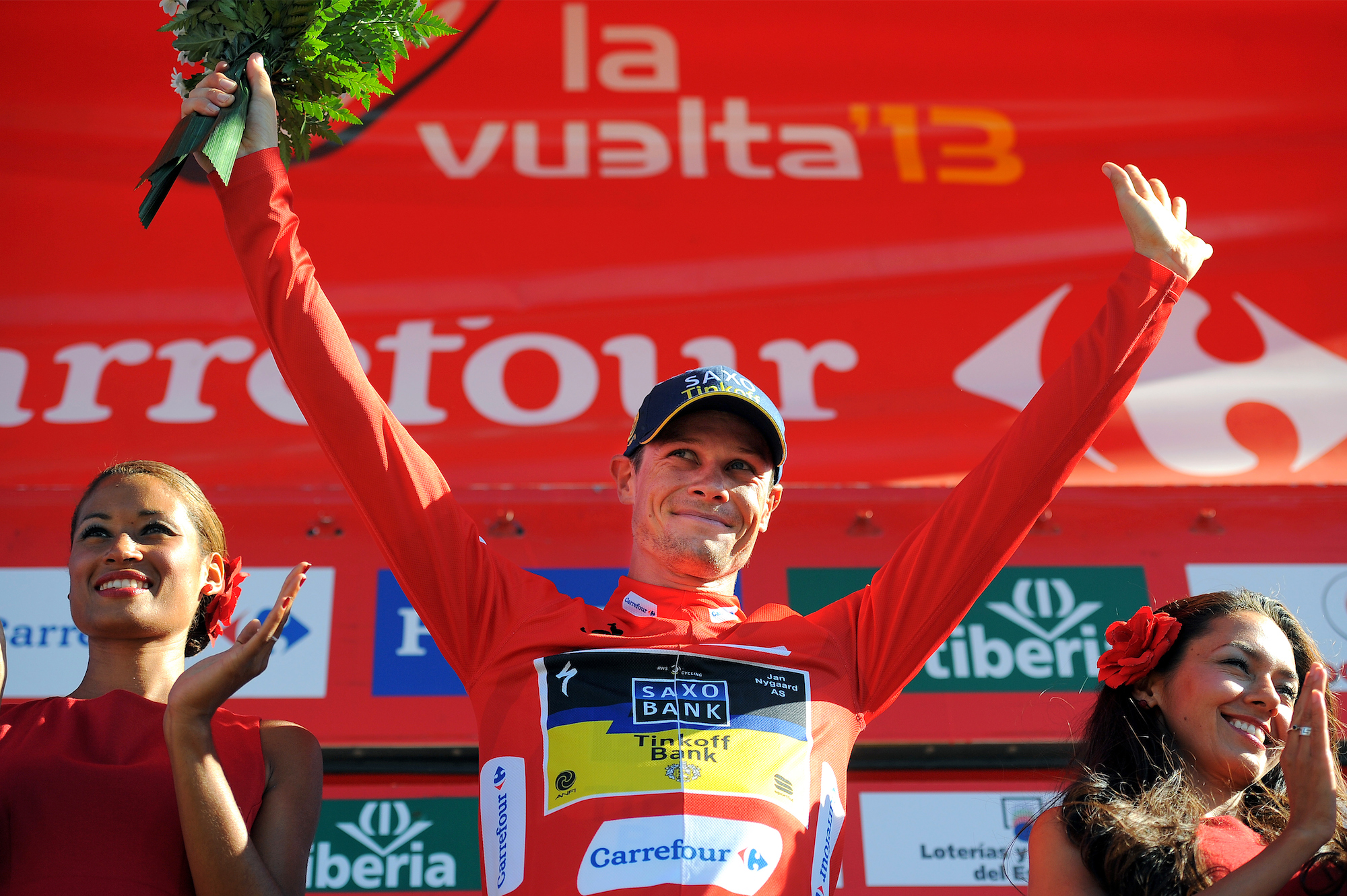
His joy was short-lived, though, as the next day Moreno claimed his second stage win of the race and the eight-second advantage across the line meant he leapfrogged the Irishman by just a single second. Your first day ever in a leader's jersey at a Grand Tour is supposed to be one you cherish, but this was not the case for Roche.
"The stage where I lost it [and the one day he wore the red jersey in the race], unfortunately, I did not enjoy a second of the stage. I enjoyed the sign-on and that was about it," Roche admits.
"It was a hardcore stage. I remember Katusha had their plan to take the jersey off me and the race went bananas from kilometre one.
"Katusha were the hammer and we were the nails. We just sat behind Katusha all day and it was a high-speed train to the finish. When Moreno went, he just went."
A freezing end to GC ambitions
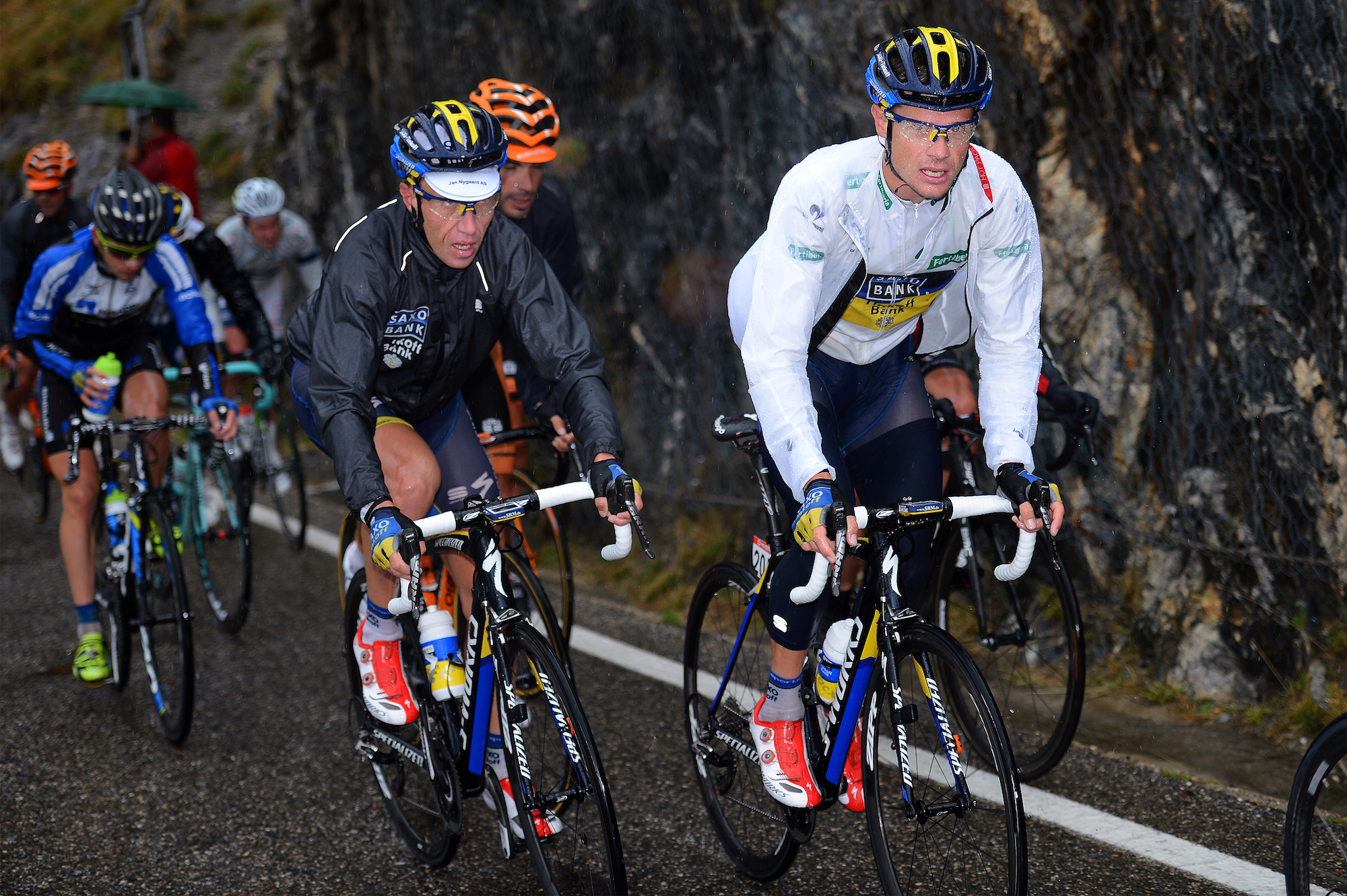
At the start of stage 14, a miserably cold and rainy day in Andorra, Roche sat in second on GC, 31 seconds behind Nibali. By the end of the day, however, he had slipped to sixth overall, four minutes off the pace and out of the serious GC placings.
"Once again, talking about shooting myself in the foot," Roche begins, "when you're growing up in Ireland or in the UK you get brought up saying you must be hard and not overdress when it's rainy and all that. Somehow, though, I was smart and actually Horner and I were two of the first guys to go back and get legwarmers, rain jackets, and everything.
"Then everybody started panicking when we started hitting the climb 50km down the road when it started snowing. This is where Basso had to stop and had to pull out because his hands froze but I was ready.
"When we started that second last climb I remembered the stage profile, there was the descent and then one or two kilometres of flat and then straight up to the final climb that was the Coll de la Gallina. And I was trying to think and looking back to when I was 15 in Ireland where when you came to sprint finishes you needed to take all your clothes off, there was no such thing as crossing the line with your arm warmers down."
Going up that climb Roche says he was getting a little bit overexcited as Valverde, who was trailing him by 15 seconds on GC, had been dropped and was two minutes down the road. With Chris Horner and Joaquim Rodriguez the next closest pair, both two minutes behind in the overall, Roche's chances of securing a podium place were looking solid.
"It was almost done... it was something that was really realistic until my decision on the top of the last climb. I was afraid to do the last climb with my legwarmers on as I thought it would mean I wasn't going to be to breathe because they're thicker, but bloody hell it was minus two, of course I was going to be able to breathe with kneewarmers on!
"So I stripped on the final descent and threw everything at the buses that were parked at the bottom of the last climb and when I got out of the saddle at the bottom my knees were two pieces of ice. I lost six minutes in six kilometres and that was the biggest mistake of my life. I had just basically thrown away a Grand Tour podium because I took off my bloody kneewarmers.
"But it was unbelievable, if you look at the video again you can see me riding so easy, perfectly positioned on the second last climb with Horner and that group of leaders and then suddenly you see the first one dropped on the climb and then I had nothing left, I could not move on the bike. I was frozen.
"That was game over and Valverde caught me at the bottom, a couple of kilometres down the road, and he put three minutes into me within a couple of kilometres. My dreams of a podium were completely gone."
At the end of the stage Roche was inconsolable.
"My head was down, I was like a beaten dog. That night Bjarne came up to the dinner table with a bottle of wine and served a glass to everybody and he said, 'right, sometimes you win, sometimes you lose. Today it was a hard battle, let's have a drink together and forget about it and refocus for tomorrow'.
"We had our glass of wine and then he said, 'alright, you guys rest and relax, I'll put together a plan.'"
The next morning Saxo-Tinkoff went on the attack. Not willing to settle for Roche's sixth on GC, it was top five or nothing at all. Roche talks of the dedication of his team-mates after he attacked on the Port de Bales climb, with Oliver Zaugg waiting for him on the descent before Majka sat up to assist up the Peyresourde to the finish, helping Roche finish third on the stage and claw back vital seconds.
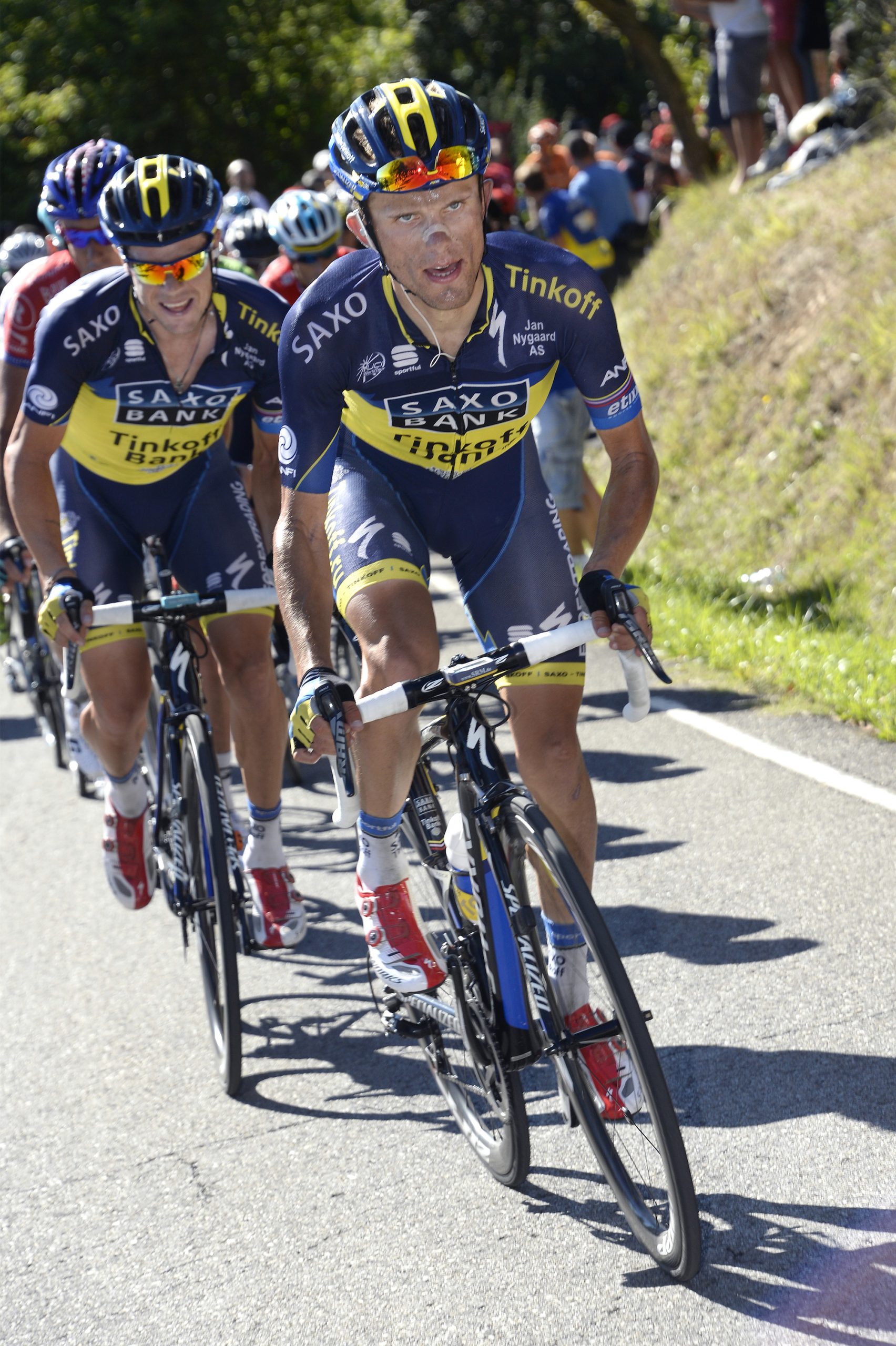
Two days later, Matteo Tosatto, Mørkøv and Majka would split the peloton in crosswinds in the closing kilometres, taking Roche back up to fifth place, and that's where he would stay. Majka once again was on hand in the final, yet significant, task of the Angliru summit finish of stage 20 to secure a top five GC finish in a Grand Tour.
"Rafał was keeping me motivated, he was like, 'come on Nico! Three weeks for this, five kilometres to go and we've done it, come on Nico! Come on Nico! Come on Nico!
"[After the finish] I went through to the tents and he gave me a hug and when he let go of me my legs went, I kind of had a dizzy spell and that was it, I was on the ground," he laughs.
"But I was done, I was top five in a Grand Tour and it was great to live that experience of having a full team ride with me and then me being able to deliver quite a decent result."
How does this 2013 Vuelta stack up when compared to 2015, when he won another stage, or 2019 when he took the red jersey for a second time?
"I still think number one, definitely. Even to go back to 2010 when I was sixth overall with Ag2r, I think I was only 45 seconds from the podium in 2010 and I completely messed up on my time trial. I was so so nervous and we were all still tight [on GC].
"I went flat out with a headwind and had a super intermediate time but then there was a tailwind and you really had to push to get your speed up and I was really losing time to my rivals. I knew I could have made the podium in a Grand Tour with that time trial and I was just lacking experience. I didn't manage it well at all, I completely cracked under pressure."
The second coming of Nicholas Roche
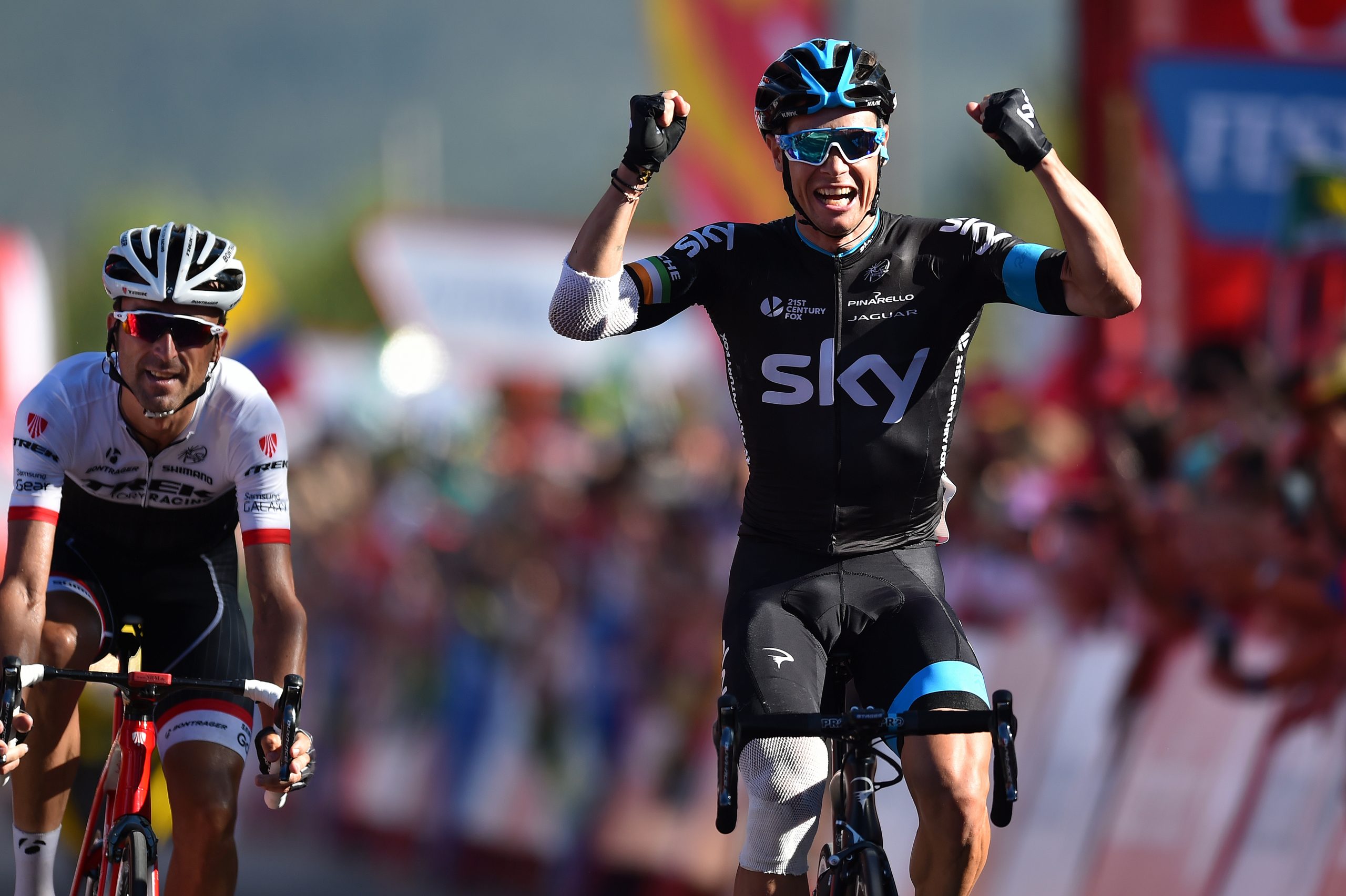
"The 2015 Vuelta was quite disappointing for me as I started off in really good shape, as good as in 2013. I think in the first week I was third or fourth on GC when I had three crashes in two days. The next day was the rest day and then I started the Andorra stage and I just felt it was not going to happen. I spent a couple of days in the gruppetto and I was struggling but I was not going to go home."
Having just arrived at Sky and riding well in a Tour team that delivered Chris Froome his second yellow jersey, he was now riding at the Vuelta as a back-up to the two-time Tour winner and so was allowed some freedom. Roche wasn't about to give up this opportunity.
"I was just like, wow, I've had my chance with Saxo-Tinkoff and now my chance with Sky. This is amazing."
Roche says some days when the peloton was doing 4,000m of climbing he did think what on earth he was still doing in the race but he kept the faith, shipping an hour over the second week that saw him fall down the overall rankings as Froome pulled out after fracturing his foot in a crash.
On stage 18, however, Roche was feeling healthier and more positive, deciding to give the race a final go. Looking at the stage map he knew it was going to be a tailwind for the first couple of hours and that was when the breakaway would go. He put on a 54-tooth chainring to give him more leverage with the tailwind that helped him make the break alongside other strong riders.
Roche bid his time and attacked on the last climb, with Haimar Zubeldia hanging on for company. They agreed to go flat out to the finish and let the best man win.
Watching the footage of the finishing straight back, you would assume Roche is grimacing as he looks round to check Zubeldia is still on his wheel, but look more closely and it more resembles a grin. As the sprint opens up the Spaniard can't get past and once again Roche manages to punch the air in celebration just before the white line. "For me, it was a moment in my career where it was just so important to win," says Roche.
Roche's stage win had salvaged something from what was a Grand Tour to forget for Sky.
The third act
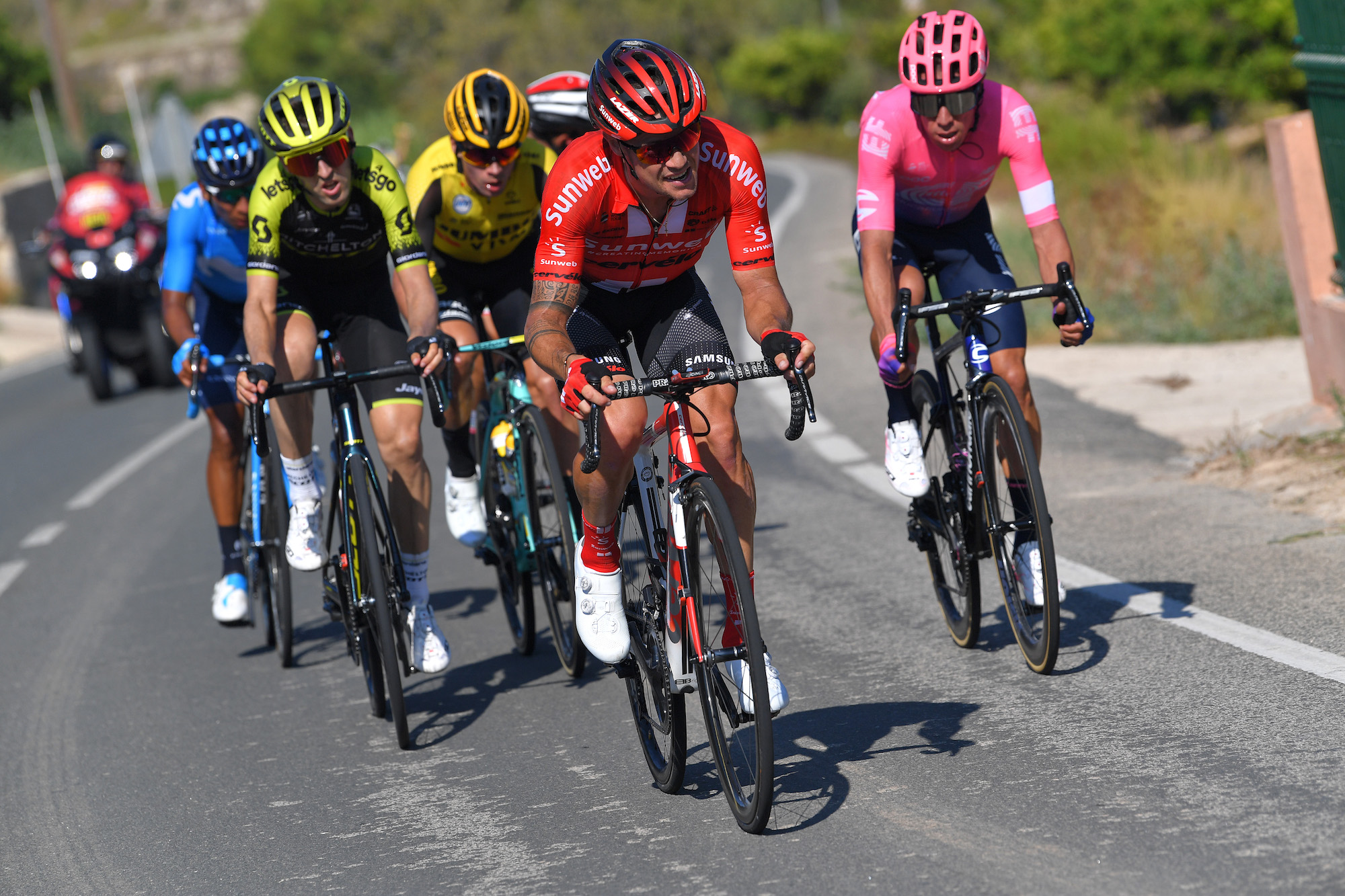
Going into the 2019 Vuelta, Sunweb had Wilco Kelderman as their priority with Roche, not as a backup, but a rider who would be giving a chance to do something, which is all the Irishman wanted.
They rode an impressive team time trial with a relatively inexperienced squad and finished only five seconds down on Astana's best time. The next morning Roche wasn't the only rider with the red jersey potentially within his grasp.
"It was not unexpected because that morning I'd had a lot of texts from friends who said, 'Nico you could be in red tonight' and at that point I believed stage two was going to be a bunch sprint, but when the speed went up on the climb I knew this wasn't going to happen," he says.
Roche capitalised on a previous move by Davide Formolo that split the race up, attacking with Mikel Nieve before being joined by a Rigoberto Urán, Nairo Quintana, Fabio Aru and Primož Roglič, who were all looking to capitalise on race leader Miguel Ángel López being caught out behind.
"I thought, 'alright, this is a proper group now, now we have a chance', but at that point I was thinking of the stage win more than the red jersey, just because it's a natural reflex, you know?
"When you're there and you're going flat out, racing for the win, I wasn't that aware of my advantage, it only came up with about 10km to go. I just asked on the radio if there was a chance of me taking red and Luke Roberts [DS] said, 'Nico, if you win the stage you're in red'. That was the perfect answer."
There were many stipulations as to who could have ended up in red.
If Roche had finished second but Urán was third, the Colombian would have taken it by splits of a second. Bu Roche and Sunweb didn't have time to work out every possible permutation.
Nairo Quintana attacked with 3km to go and won the stage but Roche led the rest of the group across the line in second, putting himself in red by two seconds.
This time, Roche tripled his days in red, holding the race lead until stage five when Miguel Ángel López took back the jersey. Disaster struck the following day, though, as Roche was forced to abandon stage six after a huge crash that also claimed Urán and Hugh Carthy.
"There’s not much to say," Roche said after crashing out. "I think this is one of the biggest disappointments I’ve had in my career. I’d worked so hard to get back to this level and it was a new opportunity to show that I was at this level again."
Initially, Roche required stitches to his left forearm as well as suffering a bruised right quadricep but further medical checks revealed the Irishman also suffered a fractured left kneecap.
"After going through the big disappointment of leaving the Vuelta, I held hope that I would still be able to continue riding my bike and compete in the Italian classics once the swelling had healed," Roche said at the time. "But this news has just hit me again – now my priority is to look after my rehabilitation in the best way possible so that I can get back healthy and on the bike ASAP."
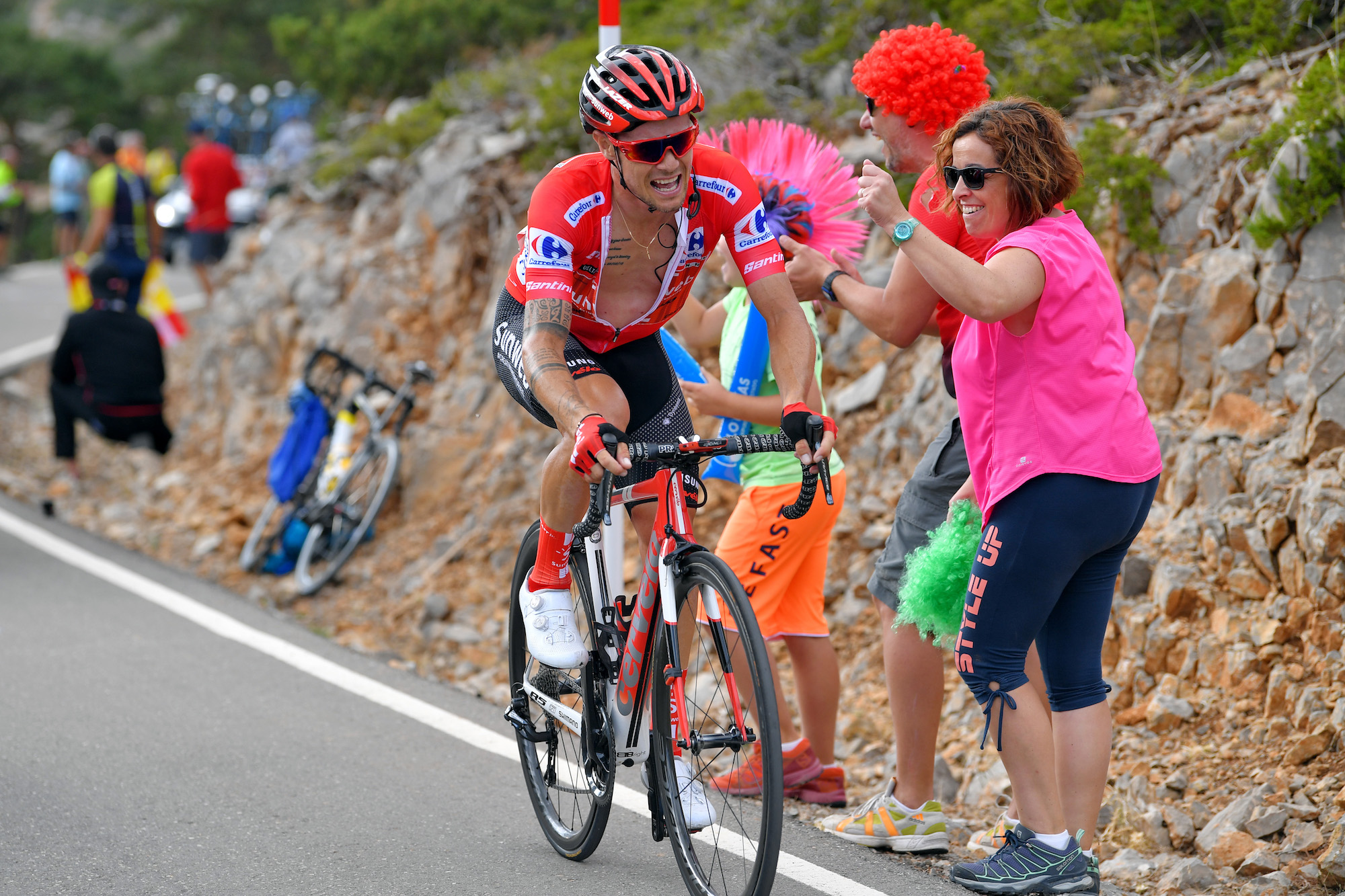
Stage six of the Vuelta was, unsurprisingly, Nicholas Roche's last race day of 2019. He resolved to work hard to rehabilitate over winter so he could arrive in 2020, his sixteenth year as a pro, in top condition.
He only managed three race days before coronavirus put the season on hold, taking seventh overall at the Tour des Alpes Maritimes et du Var, finishing behind the likes of Nairo Quintana, Romain Bardet, Richie Porte and Thibaut Pinot.
When we spoke, Roche had been in his Monaco apartment for two weeks and was looking on the bright side of things, just as he has done when looking back on his career so far.
"There are days where although I've been alone and I've seen nobody except from at my local grocery place and boulangerie, there are days where I just don't feel lonely despite spending 24 hours a day alone.
FaceTime dinners with friends, copious turbo training sessions, as well as e-racing, which Roche has continuously been at the pointy end of, have kept him occupied over the following five weeks of lockdown.
"So from today we can go out on the road," Roche writes on Instagram on Monday May 4. "Unfortunately only within the principality. I guess I might stick to the ergo one more week. It's been seven weeks, I can survive eight."
Survival is a quality most pros need as a built-in feature in order to succeed, and the same goes for Roche. It's not about endless dominant performances and countless wins, it's a real story of a real bike racer. Like a Grand Tour, his tale has depth, nuance, and passion.
His father, Stephen Roche, only competed in the Vuelta once, in 1992, and came 14th. That the chaos of the universe conspired for his son to find his own path of sporting highs in the Spanish Grand Tour is more by accident than design.
"I've always, in a way, been quite lucky that I've had support at the right moments. And yes, things worked out because I was in the shape of my life but maybe it couldn't have worked out and that was it," he analyses.
All along the way, his story could have been different. A different decision here, a few seconds either way there. For instance, his career high-point could have been at the Tour de France in Nice, and this small change would have made his life deviate to a point where his 2013 Vuelta would have probably never happened.
"I was only three seconds off yellow in Nice in 2013, so it wasn't like I was too far off the yellow jersey either, it just never happened," he chuckles.
Always, Roche makes his peace with the pandemonium. A useful quality for the world we find ourselves in today.

Thank you for reading 20 articles this month* Join now for unlimited access
Enjoy your first month for just £1 / $1 / €1
*Read 5 free articles per month without a subscription

Join now for unlimited access
Try first month for just £1 / $1 / €1
Jonny was Cycling Weekly's Weekend Editor until 2022.
I like writing offbeat features and eating too much bread when working out on the road at bike races.
Before joining Cycling Weekly I worked at The Tab and I've also written for Vice, Time Out, and worked freelance for The Telegraph (I know, but I needed the money at the time so let me live).
I also worked for ITV Cycling between 2011-2018 on their Tour de France and Vuelta a España coverage. Sometimes I'd be helping the producers make the programme and other times I'd be getting the lunches. Just in case you were wondering - Phil Liggett and Paul Sherwen had the same ham sandwich every day, it was great.
-
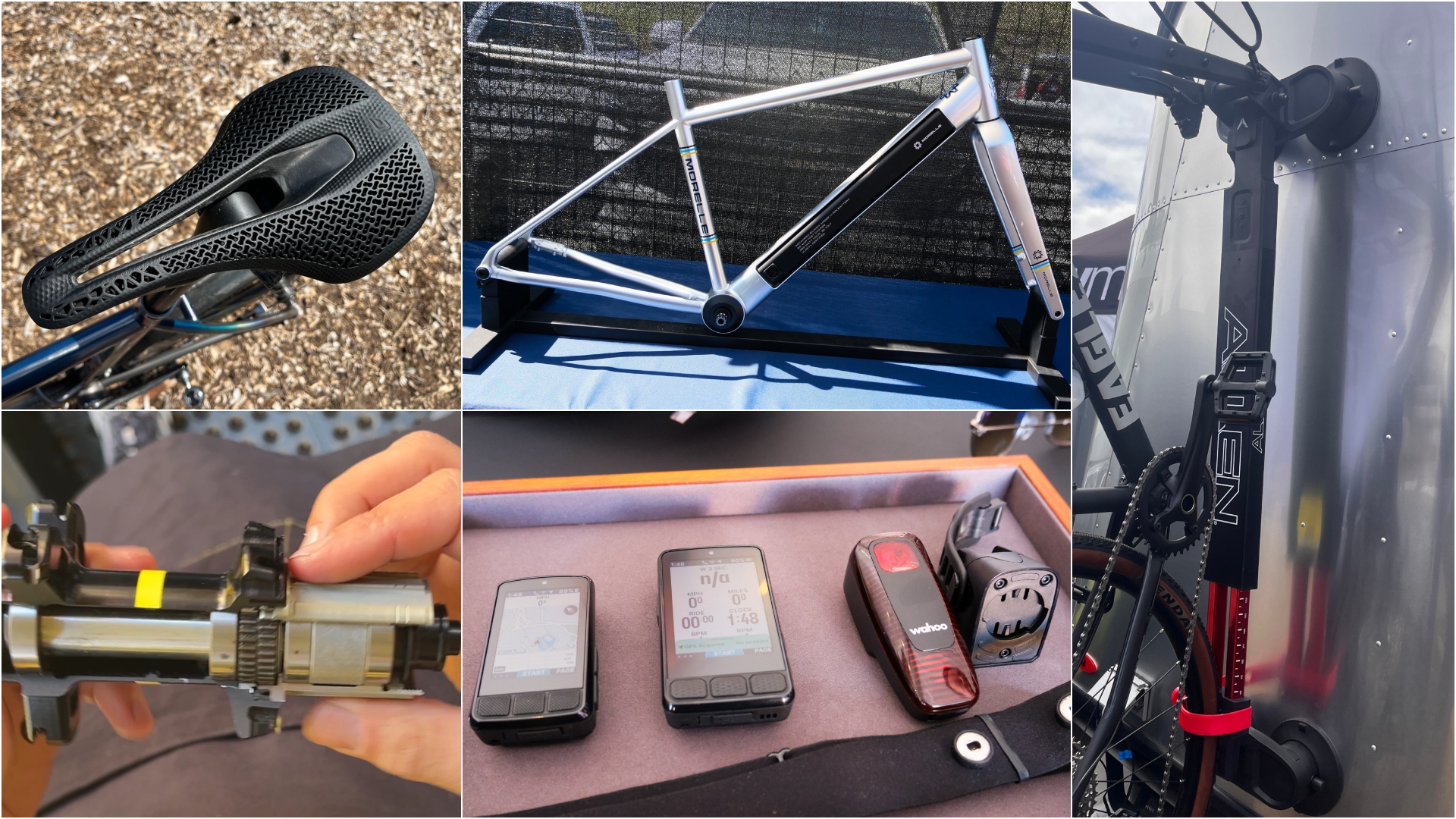 A bike rack with an app? Wahoo’s latest, and a hub silencer – Sea Otter Classic tech highlights, Part 2
A bike rack with an app? Wahoo’s latest, and a hub silencer – Sea Otter Classic tech highlights, Part 2A few standout pieces of gear from North America's biggest bike gathering
By Anne-Marije Rook
-
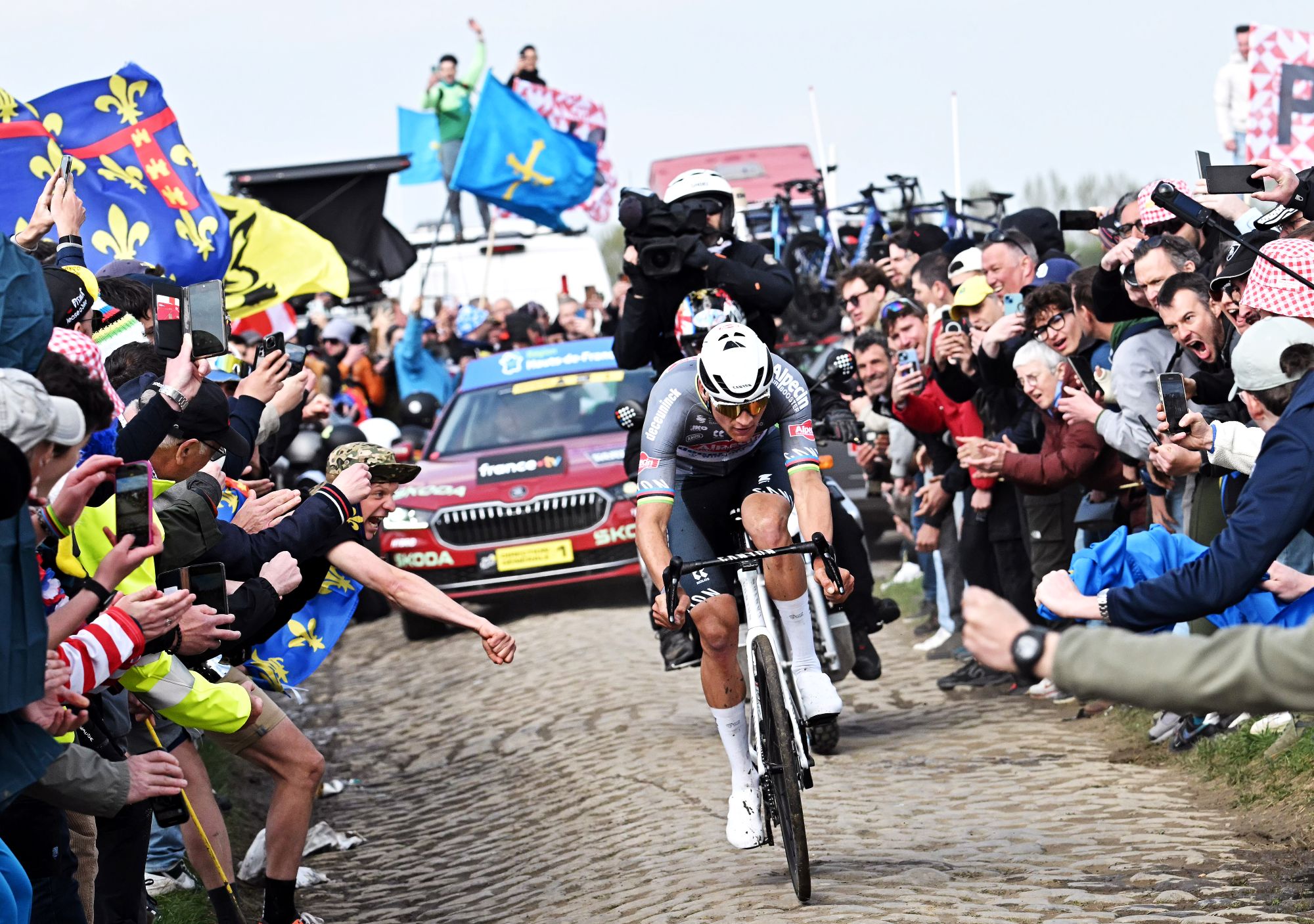 Cycling's riders need more protection from mindless 'fans' at races to avoid another Mathieu van der Poel Paris-Roubaix bottle incident
Cycling's riders need more protection from mindless 'fans' at races to avoid another Mathieu van der Poel Paris-Roubaix bottle incidentCycling's authorities must do everything within their power to prevent spectators from assaulting riders
By Tom Thewlis
-
 'It's not normal that riders should risk their life' - Ex-pro cyclist calls for action on crashes
'It's not normal that riders should risk their life' - Ex-pro cyclist calls for action on crashesNicolas Roche spoke of his crash at the 2019 Vuelta a España, which he "never really recovered from" after Itzulia crash
By Adam Becket
-
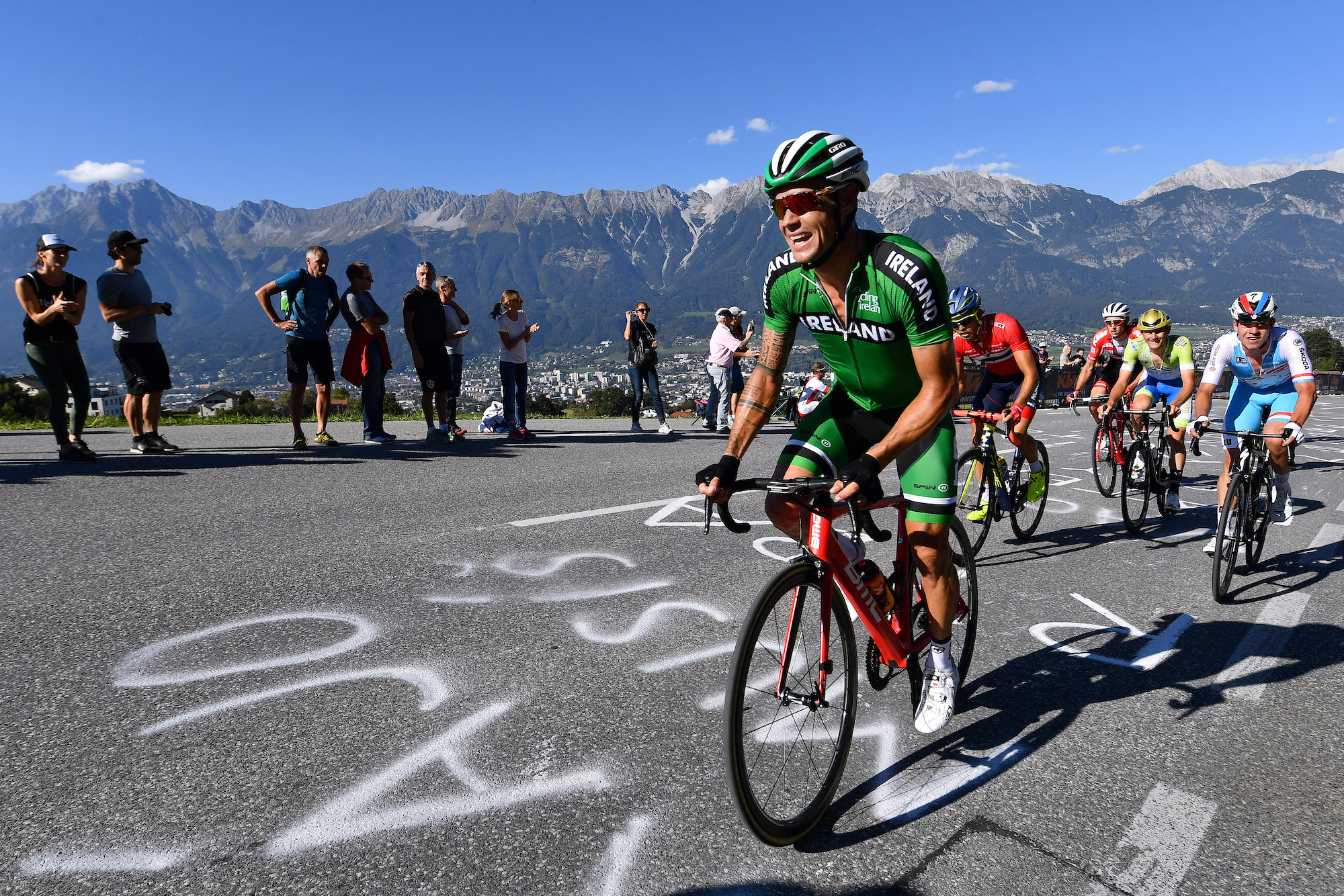 Nicolas Roche appointed sports director of Ireland road racing program
Nicolas Roche appointed sports director of Ireland road racing programThe recently retired Irishman will also mentor the junior and U23 teams
By Jonny Long
-
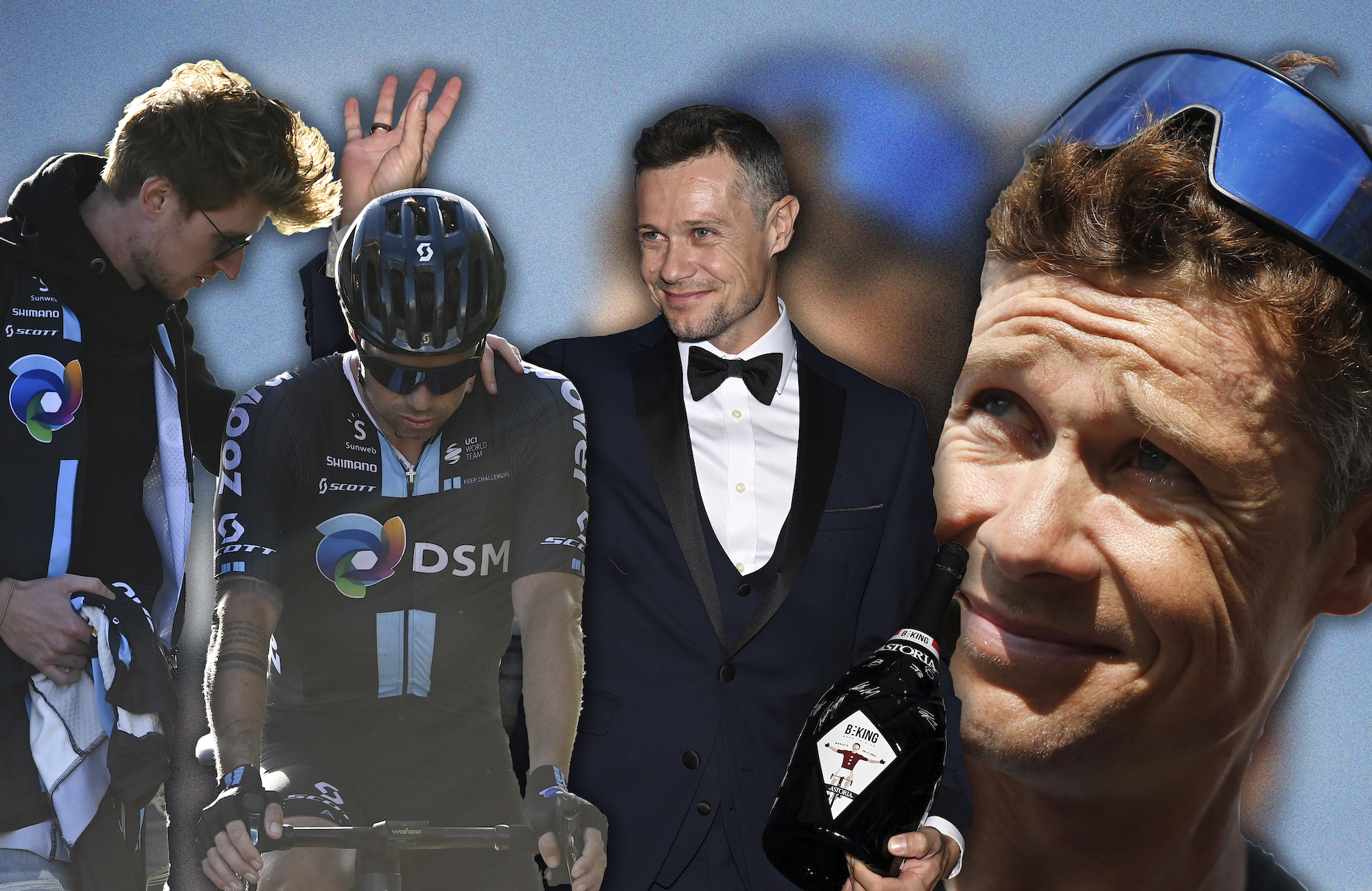 ‘There were other problems when I started,' says Nicolas Roche, 'it was pre-Puerto and I was getting my ass whupped every weekend with people cheating’
‘There were other problems when I started,' says Nicolas Roche, 'it was pre-Puerto and I was getting my ass whupped every weekend with people cheating’As the retired pro eases into retirement he weighs up what to do next
By Jonny Long
-
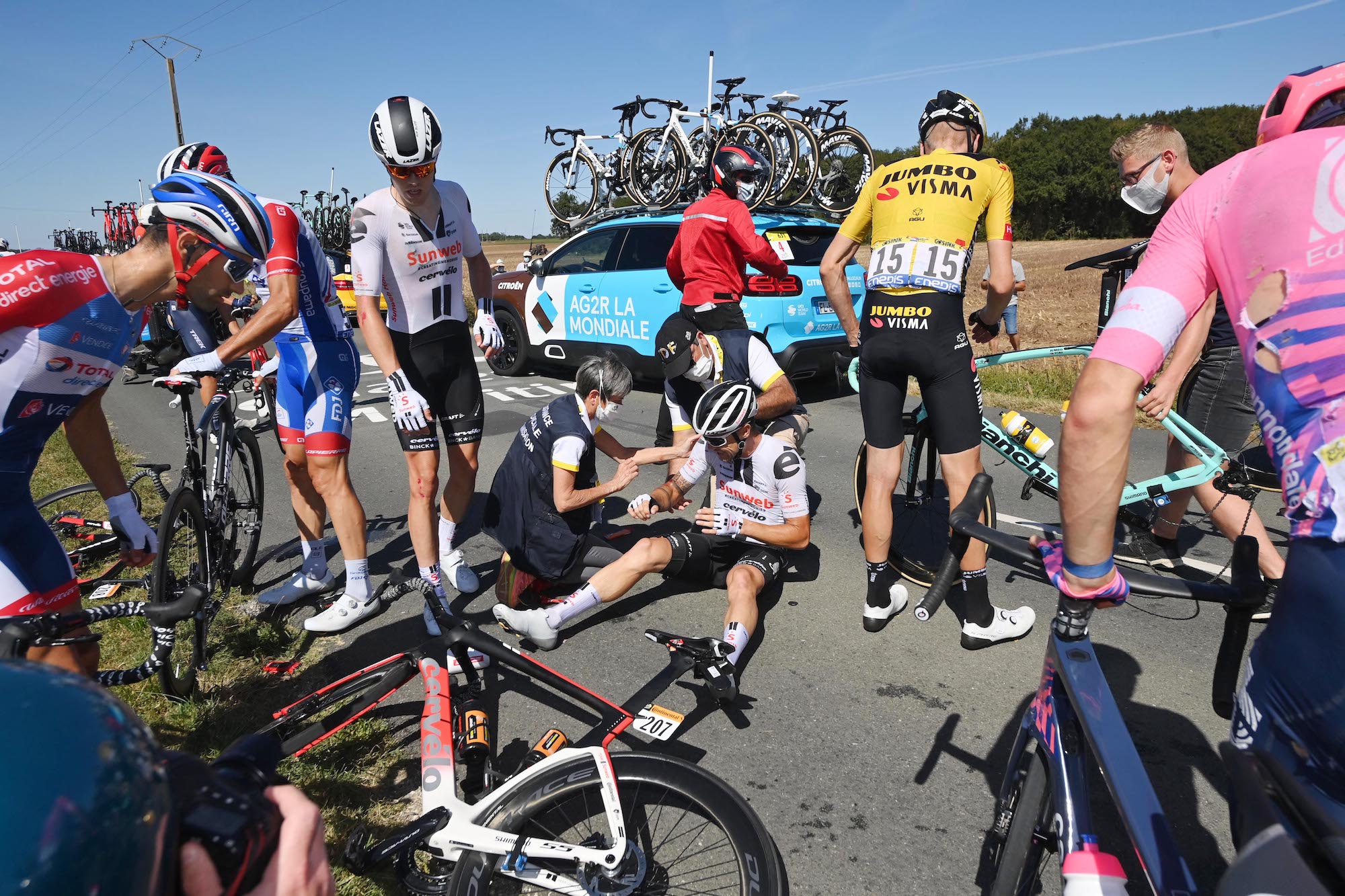 Tour de France 2020: Nicolas Roche shares pictures of wounds caused by cassette in stage 10 crash
Tour de France 2020: Nicolas Roche shares pictures of wounds caused by cassette in stage 10 crashSunweb’s Nicolas Roche was one of the many riders caught in crashes during a stressful stage 10 of the Tour De France.
By Alex Ballinger
-
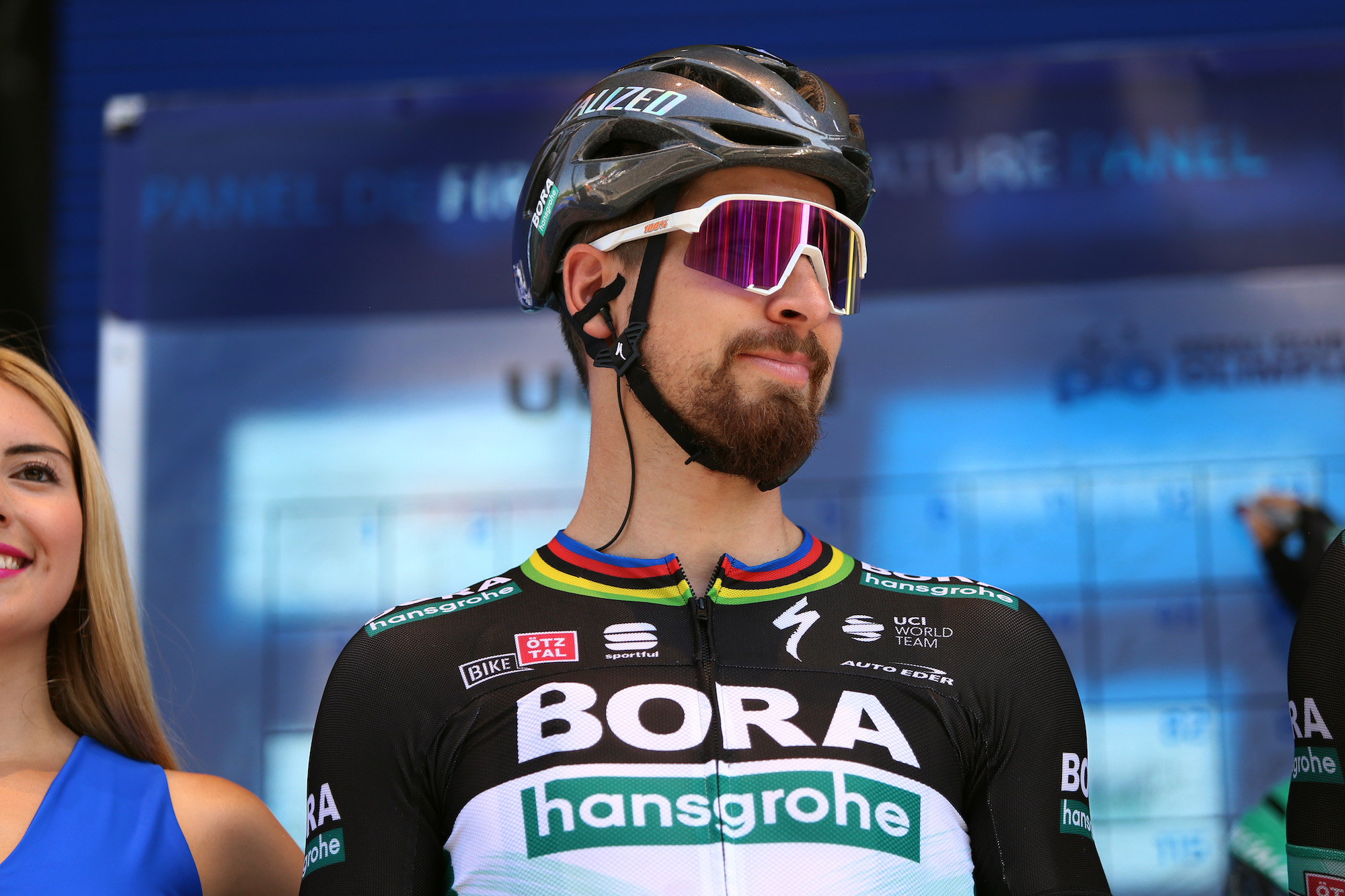 ‘Like the first day of school’: Pros react as they’re allowed to ride outside for first time in seven weeks
‘Like the first day of school’: Pros react as they’re allowed to ride outside for first time in seven weeksWhile riders in the UK have been able to ride outside, plenty of pros have been trapped inside their homes over the last few weeks due to coronavirus lockdown rules in European countries.
By Alex Ballinger
-
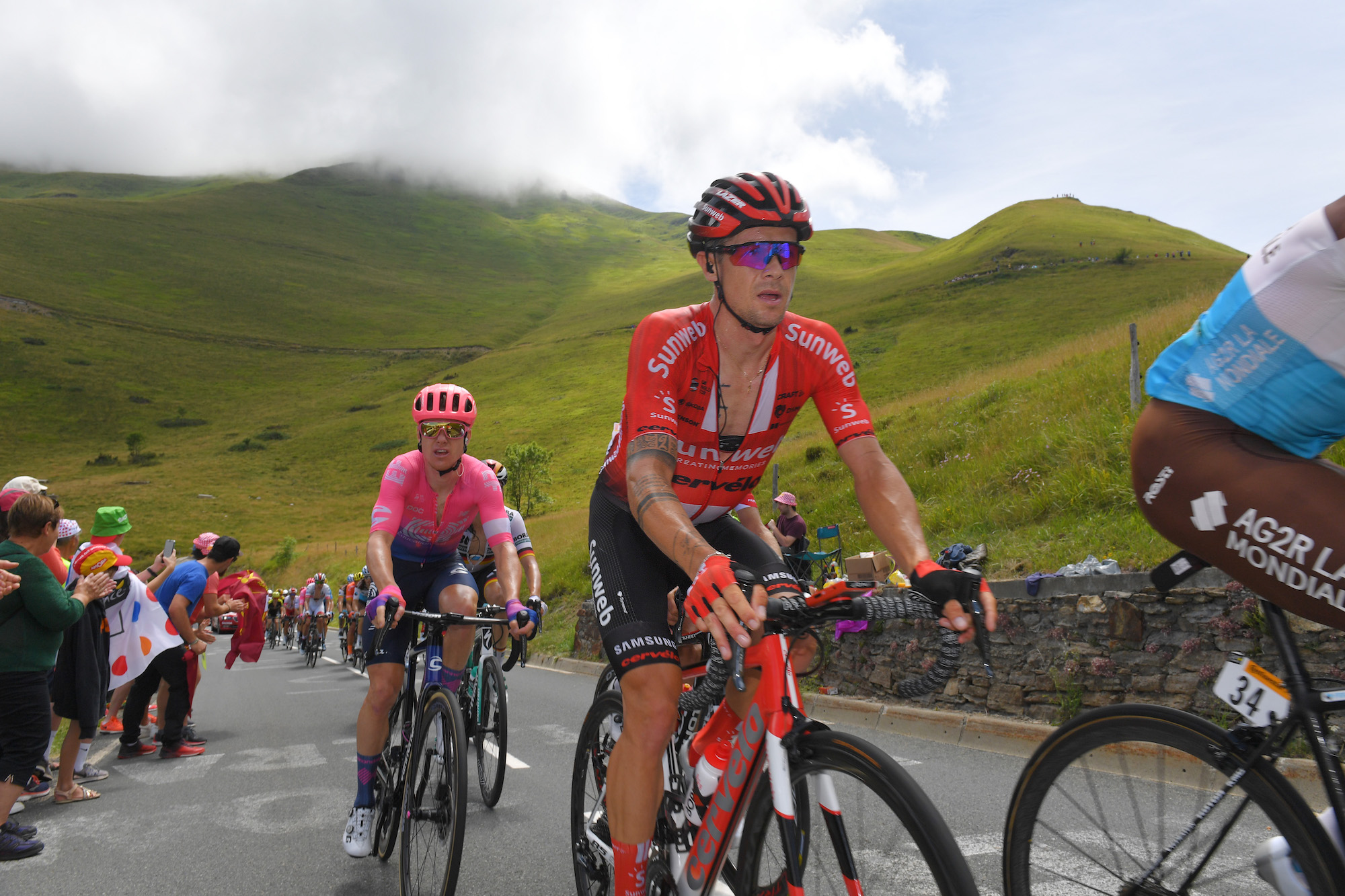 Nicolas Roche extends contract with Sunweb to keep racing until 2021
Nicolas Roche extends contract with Sunweb to keep racing until 2021The Irishman will now take his number of years as a professional up to 17
By Jonny Long
-
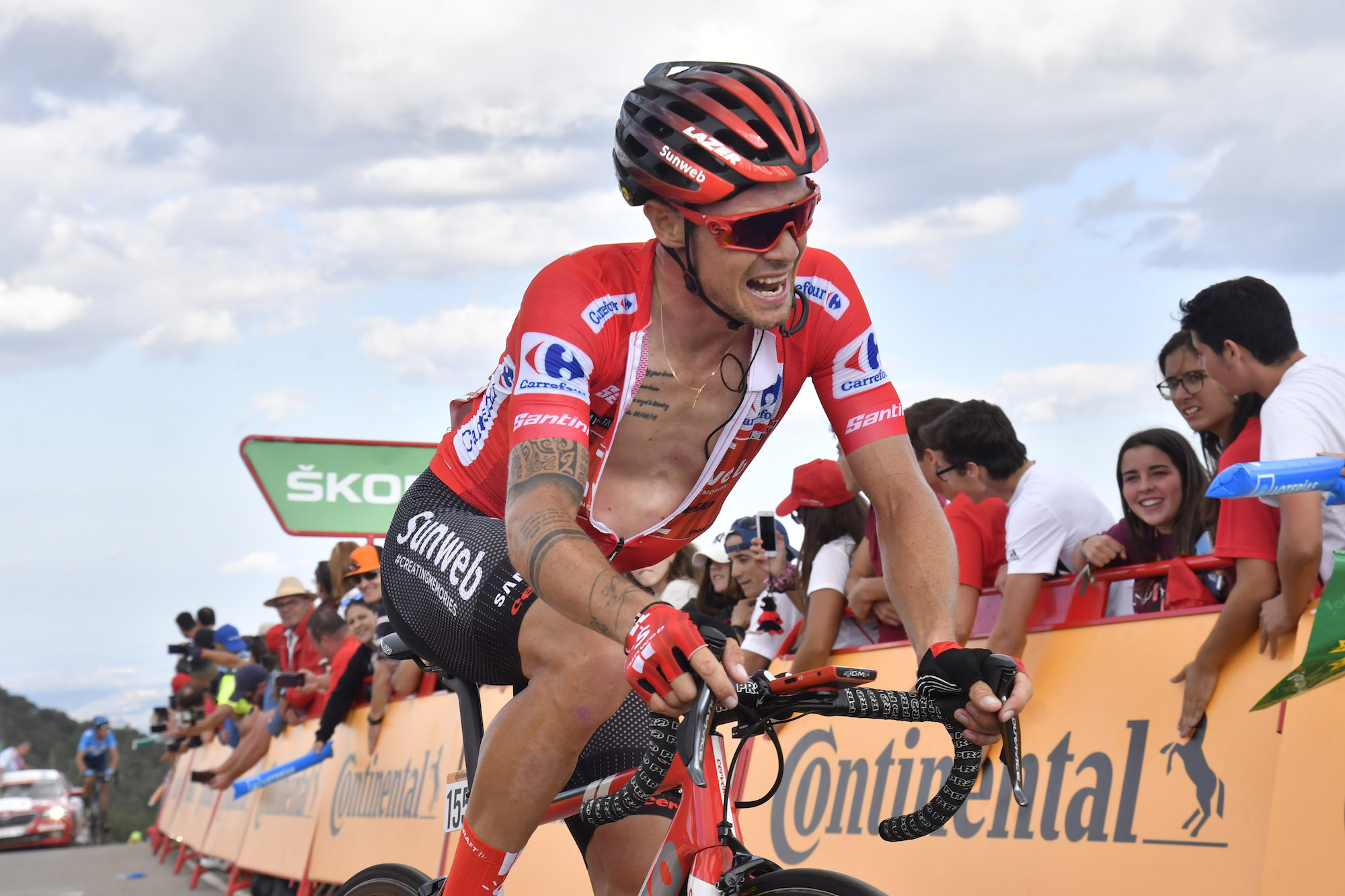 ‘This is one of the biggest disappointments of my career’: Nicolas Roche devastated after abandoning Vuelta a España 2019
‘This is one of the biggest disappointments of my career’: Nicolas Roche devastated after abandoning Vuelta a España 2019Nicolas Roche said abandoning the 2019 Vuelta a España is one of the biggest disappointments of his career.
By Alex Ballinger
-
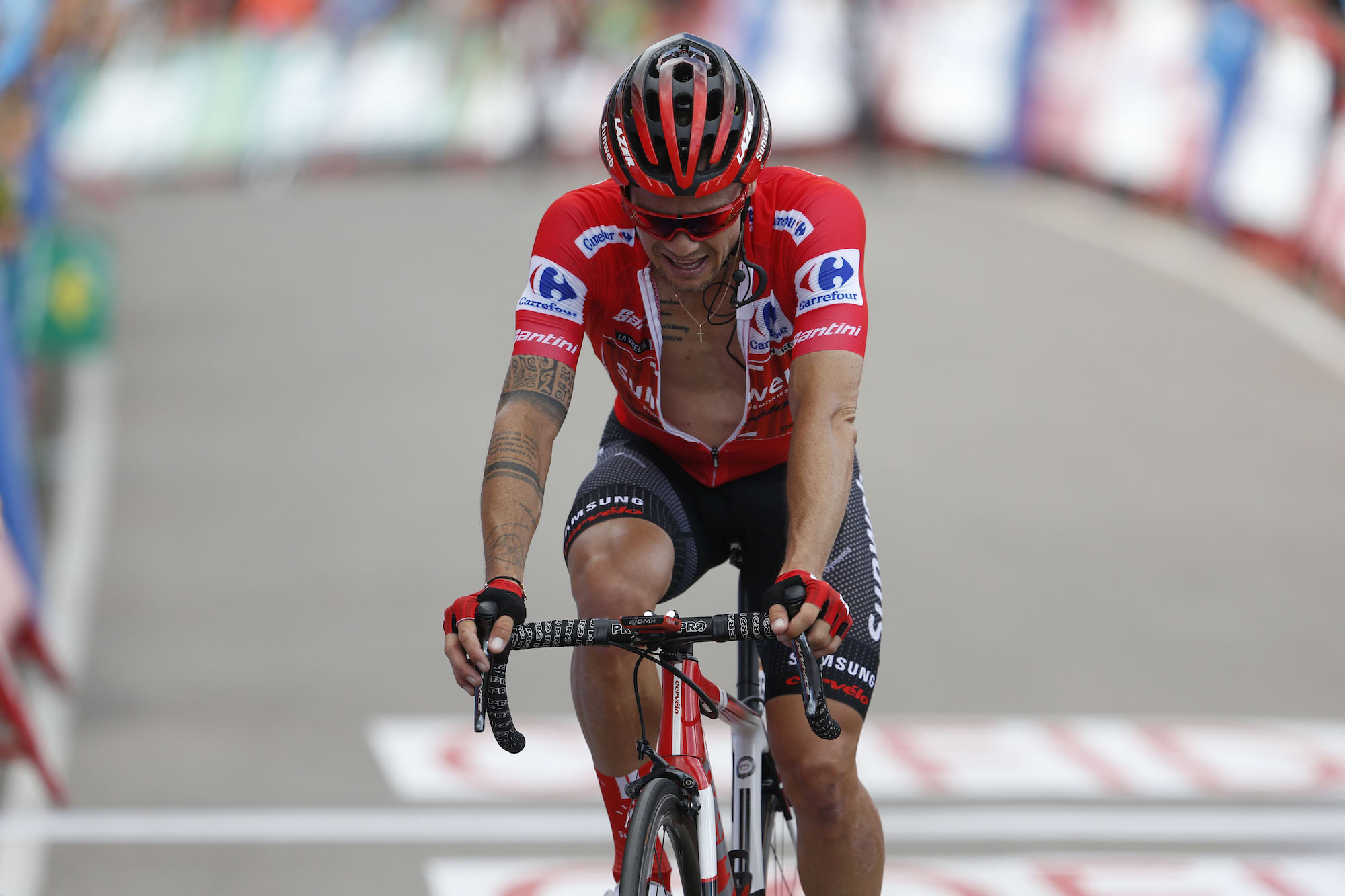 'Valverde's attack killed me': Nicolas Roche eyeing Vuelta a España top 10 finish after losing red
'Valverde's attack killed me': Nicolas Roche eyeing Vuelta a España top 10 finish after losing redThe Irishman couldn't hold on to the race lead in the first summit finish of the 2019 Vuelta a España
By Gregor Brown